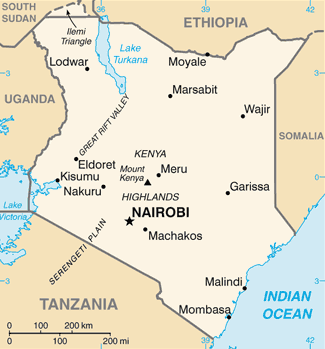
A student is primarily a person enrolled in a school or other educational institution and who is under learning with goals of acquiring knowledge, developing professions and achieving employment at desired field. In the broader sense, a student is anyone who applies themselves to the intensive intellectual engagement with some matter necessary to master it as part of some practical affair in which such mastery is basic or decisive.
Education in Japan is compulsory at the elementary and lower secondary levels. Most students attend public schools through the lower secondary level, but private education is popular at the upper secondary and university levels. Education prior to elementary school is provided at kindergartens and day-care centers. The programmes for those children aged 3–5 resemble those at kindergartens. The educational approach at kindergartens varies greatly from unstructured environments that emphasize play to highly structured environments that are focused on having the child pass the entrance exam at a private elementary school. The academic year starts from April and ends in March, having summer vacation in August and winter vacation in the end of December to the beginning of January.
Education in Greece is centralized and governed by the Ministry of Education and Religious Affairs at all grade levels. The Ministry exercises control over public schools, formulates and implements legislation, administers the budget, coordinates national level university entrance examinations, sets up the national curriculum, appoints public school teaching staff, and coordinates other services.

The system of education in Uganda has a structure of 7 years of primary education, 6 years of secondary education, and 3 to 5 years of post-secondary education. Education in Uganda is administered in English. All through out the levels in the education structure, modules are taught and assessed in English. The government of Uganda recognizes education as a basic human right and continues to strive to provide free primary education to all children in the country. However, issues with funding, teacher training, rural populations, and inadequate facilities continue to hinder the progress of educational development in Uganda. Girls in Uganda are disproportionately discriminated against in terms of education; they face harsher barriers when trying to gain an education and it has left the female population disenfranchised, despite government efforts to close the gap.

Education in Bangladesh is overseen by the country's Ministry of Education. The Ministry of Primary and Mass Education is responsible for implementing policy for primary education and state-funded schools at a local level. In Bangladesh, all citizens must undertake ten years of compulsory education which consists of five years at primary school level and five years at high school level. Primary and secondary education is financed by the state and free of charge in public schools.
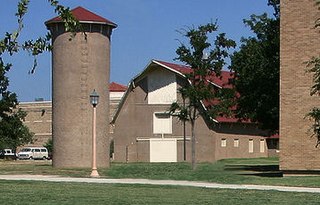
Agricultural Education is the teaching of agriculture, natural resources, and land management. At higher levels, agricultural education is primarily undertaken to prepare students for employment in the agricultural sector. Classes taught in an agricultural education curriculum may include horticulture, land management, turf grass management, agricultural science, small animal care, machine and shop classes, health and nutrition, livestock management, and biology.
Education in Kenya refers to the education system in Kenya.
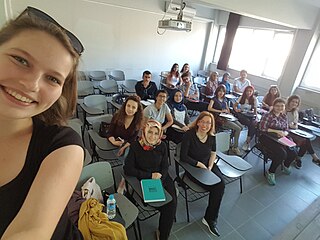
Education in Turkey is governed by a national system which was established in accordance with the Atatürk's Reforms after the Turkish War of Independence. It is a state-supervised system designed to produce a skillful professional class for the social and economic institutes of the nation.

Education in the Palestinian Territories refers to the educational system in the Gaza Strip and the West Bank, which is administered by the Palestinian Ministry of Education and Higher Education. Enrollment rates amongst Palestinians are relatively high by regional and global standards. According to a youth survey in 2003, 60% between the ages 10–24 indicated that education was their first priority. Youth literacy rate is 98.2%, while the national literacy rate is 91.1%. Enrollment ratios for higher education were 46.2% in 2007, among the highest in the world. In 2016 Hanan Al Hroub was awarded the Varkey Foundation Global Teacher Prize for her work in teaching children how to cope with violence.
Education in Lebanon is regulated by the Ministry of Education and Higher Education (MEHE). In Lebanon, the main three languages, English and/or French with Arabic are taught from early years in schools. English or French are the mandatory media of instruction for mathematics and science for all schools. Education is compulsory from age 3 to 14.
Following independence from the Soviet Union, a major economic depression cut "public financing" for education in Kazakhstan, "which dropped from 6% of gross domestic product in 1991 to about 3% in 1994, before rising to 4% in 1999. Elementary- and secondary-school teachers remain badly underpaid; in 1993 more than 30,000 teachers left education, many of them to seek more lucrative employment.

Education in Cambodia is controlled by the state through the Ministry of Education in a national level and by the Department of Education at the provincial level. The Cambodian education system includes pre-school, primary, secondary education, higher education and non-formal education. The education system includes the development of sport, information technology education, research development and technical education. School enrollment has increased during the 2000s in Cambodia. USAID data shows that in 2011 primary enrollment reached 96% of the child population, lower secondary school 34% and upper secondary 21%.
The Cambodia Project (CPI) is a nonprofit organization whose mission is to develop secondary education opportunities for underserved children in rural Cambodia. The Cambodia Project, Inc. is a 501(c)(3) nonprofit organization recognized under the Internal Revenue Code of the United States, Public Charity Status 170(b)(1)(A)(vi).

Education in Namibia is compulsory for 10 years between the ages of 6 and 16. There are approximately 1900 schools in Namibia of which 100 are privately owned. Namibian subjects' syllabi are based on the International General Certificate of Secondary Education which is part of Cambridge International. The Constitution directs the government to provide free primary education; however, families must pay fees for uniforms, stationery, books, hostels, and school improvements.
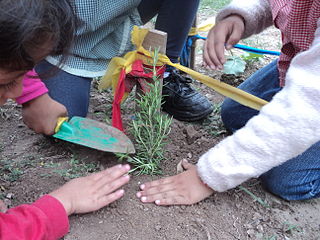
Garden-based learning (GBL) encompasses programs, activities and projects in which the garden is the foundation for integrated learning, in and across disciplines, through active, engaging, real-world experiences that have personal meaning for children, youth, adults and communities in an informal outside learning setting. Garden-based learning is an instructional strategy that utilizes the garden as a teaching tool.

Friends-International (FI) is an international social enterprise and registered non-governmental organization focusing on children's empowerment established in Cambodia in 1994. Its mission is "to build a future where all children are safe from all forms of abuse, are able to become productive citizens of their countries and contribute to a more equitable and sustainable world." FI works in Cambodia, Indonesia, Laos, Thailand and with almost 50 partners around the world, providing comprehensive social services to marginalized urban young people and their families. Since its inception, FI has supported the education, well-being, and sustainable reintegration of more than 300,000 marginalized children, youth, and caregivers.
Education in South Sudan is modelled after the educational system of the Republic of Sudan. Primary education consists of eight years, followed by four years of secondary education, and then four years of university instruction; the 8 + 4 + 4 system, in place since 1990. The primary language at all levels is English, as compared to the Republic of Sudan, where the language of instruction is Arabic. There is a severe shortage of English teachers and English-speaking teachers in the scientific and technical fields.

Charles Mutua Mully is the founder and chief executive officer of Mully Children's Family (MCF), a Christian, non-governmental organization based in Kenya that works with disadvantaged populations. Mully is the subject of the documentary film Mully, directed by Scott Haze, which was released in October, 2017.
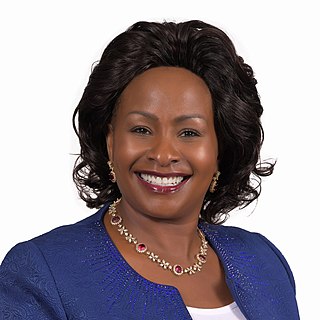
Wavinya Ndeti is a Kenyan professional and a business woman who is currently the Chief Administrative Secretary in the Ministry of Transport, Infrastructure, Housing, Urban Development and Public Works and she was chairperson of the governing council of the Kenya Water Institute since 7 February 2019. She previously served as a Member of Parliament for the Kathiani Constituency in the 10th Kenyan parliament and an assistance minister in the ministry of youth affairs and sport from 2008 to 2013. She was the first woman to be elected as a member of parliament in Machakos county since independence. She was a CCU candidate in 2013 and WDM-K candidate in 2017 for Machakos Governor.

Sustainable Development Goal 4 is about quality education and is among the 17 Sustainable Development Goals established by the United Nations in September 2015. The full title of SDG 4 is "Ensure inclusive and equitable quality education and promote lifelong learning opportunities for all".
